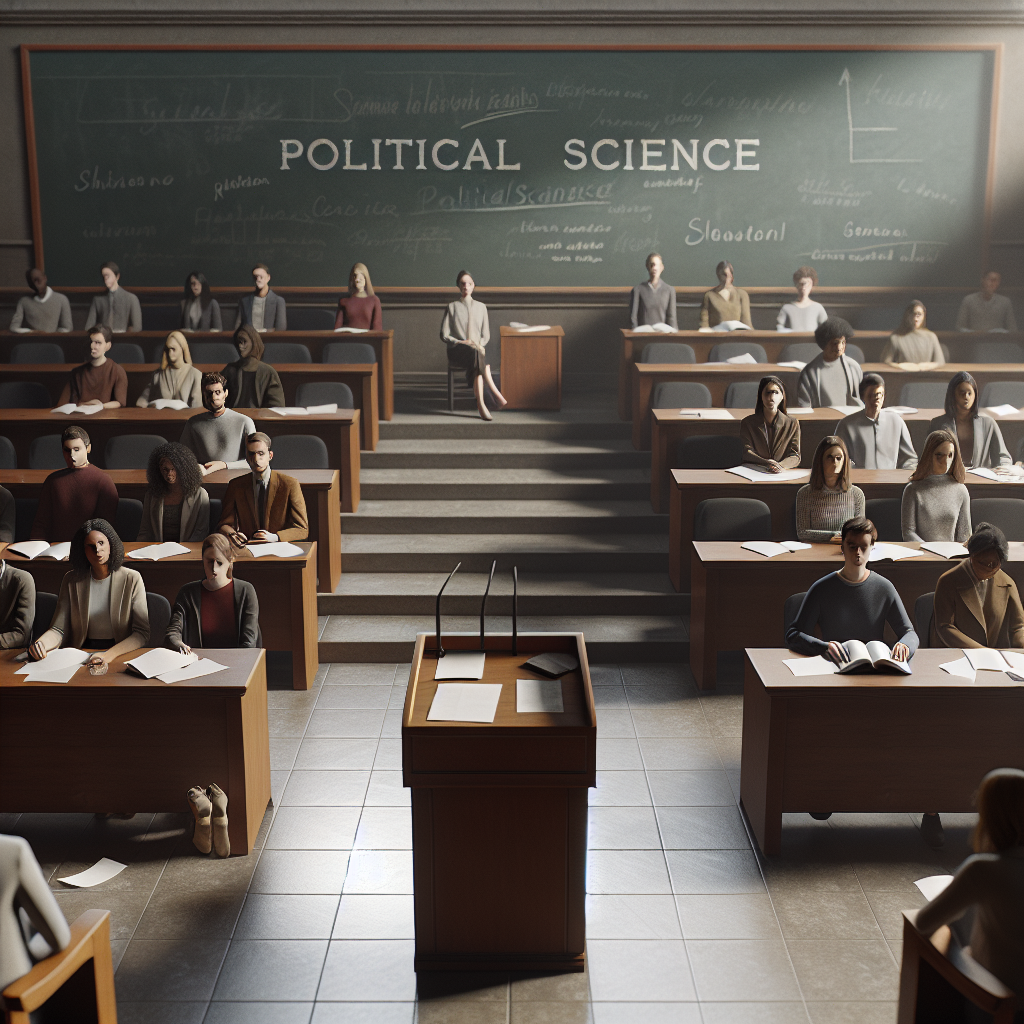
The Bias of Pessimism in Political Science: A New Study Unveils Shocking Insights
Political science, an essential field in understanding democratic dynamics, appears to be wrestling with a significant bias towards pessimism. A recent study, coauthored by University of California, Berkeley political scientist Andrew T. Little, explores how this bias negatively impacts the accuracy of predictions made by political scientists regarding future threats to democracy.
Pessimism and Democracy: A Troubling Connection
The past decade has been marked by notable challenges for US democracy. Scholars have intensely focused on these events, often interpreting them as signs of democratic decline. However, the new research suggests that this focus may have skewed predictions, leading political scientists to project more negative outcomes than actualized.
Conducted by Bright Line Watch—a group of political scientists dedicated to analyzing democratic health—the research provides unexpected insights. By examining surveys about potential democratic threats, the study suggests overly pessimistic forecasts often fail to come true.
Seeking Solutions: The Power of Aggregated Predictions
One proposed solution to counteract pessimism involves aggregating expert predictions to find a median viewpoint. This approach could significantly enhance the accuracy of forecasts, yielding what Little describes as “remarkably accurate predictions.”
Case Study: Predictions about Trump and Future Policies
A Bright Line Watch survey revealed political scientists largely agreed on future actions President Trump might take, including pardoning key figures involved in the January 6, 2021, insurrection. Although concerns remain about Trump pardoning himself or launching probes into Biden, the consensus among scholars, after accounting for pessimism, suggests these scenarios are less likely than feared.
Understanding and Correcting the Pessimism Bias
The study identifies a widespread bias towards pessimism among political scientists. This bias often leads them to predict negative events more likely than they eventually prove to be. Their average prediction over three election cycles (2020, 2022, and 2024) indicated a 44% probability for negative events, whereas less than 10% materialized.
Explaining the Expertise Bias
Little suggests expertise bias might play a role. Political scientists specializing in American politics are generally less pessimistic and more accurate. In contrast, those focused on international relations or political theory exhibit higher pessimism and inaccuracy.
- Experts concentrating on authoritarianism might perceive threats as more imminent.
- Media coverage and exposure can amplify expert opinions, emphasizing negative predictions.
The Importance of Consensus and Accurate Forecasts
For political science and journalism alike, accuracy is crucial. Little emphasizes the value of understanding a consensus perspective rather than spotlighting individual experts known for dire forecasts. This approach not only enhances understanding but also aids democratic function by fostering informed decision-making.
Bright Line Watch: A Collaborative Effort
Founded in 2016 and headquartered at the Chicago Center on Democracy, Bright Line Watch collaborates with universities like Dartmouth, Michigan, and Rochester. This network’s collective research offers a robust picture of political predictions, more nuanced and reflective of reality than those from individual experts.
Conclusion: Embracing Expert Insight with Caution
Little warns against dismissing insights from expert political scientists. The study proposes a refined analytical system that calibrates forecasts to reflect expert consensus accurately. This balance aims to demystify political predictions, promoting a healthier democratic dialogue.
For researchers and the public alike, it’s essential to embrace these adjustments, enhancing our collective understanding while ensuring democratic stability.
For a deeper dive into political science turns and the continued evolution of this vital field, keep connected with future analyses and scholarly insights.
Source: https://www.futurity.org/political-scientists-pessimism-bias-3262302/


Your point of view caught my eye and was very interesting. Thanks. I have a question for you. https://accounts.binance.com/el/register?ref=IQY5TET4